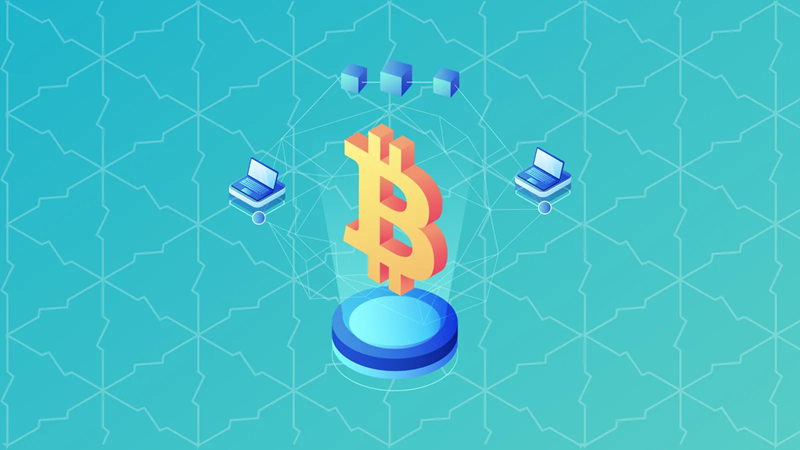What is a Strategic Bitcoin Reserve? How Countries Can Hold BTC

Proponents of strategic Bitcoin reserves argue that countries should hold Bitcoin alongside assets like gold.
As Bitcoin gains mainstream acceptance, countries and institutions are beginning to view it as more than just a speculative asset — with some looking to hold it as a strategic reserve, much like gold.
A strategic Bitcoin reserve is a reserve of BTC held by an entity, such as a government or organization, for strategic or financial purposes. In 2024, ahead of the U.S. presidential election, candidate Donald Trump and others have proposed establishing a strategic Bitcoin reserve for the United States.
Proponents argue that creating a nationwide reserve of Bitcoin and other cryptocurrencies would stabilize markets and position the United States as a leader in the digital asset space.
What is a strategic reserve?
A strategic reserve is a store of assets that governments or organizations hold to maintain stability, respond to crises, or influence markets.
Examples of strategic reserves include:
Strategic Petroleum Reserve (SPR): Established in 1975 by the United States as an emergency crude oil reserve. The U.S. Strategic Petroleum Reserve has a maximum capacity of 727 million barrels.
Strategic National Reserve (SNS): Created in 1999 by the U.S. Department of Health and Human Services and the Centers for Disease Control as a U.S. stockpile of vaccines, medical devices, and personal protective equipment for use in biological attacks or natural disasters.
Northeast Home Heating Oil Reserve: Established in 2000, as a one million barrel stockpile of diesel fuel held in Connecticut, New Jersey, and Massachusetts to supply the northeastern United States.
Strategic Maple Syrup Reserve: Established in 2000 and maintained by the Canadian government to ensure a steady supply of maple syrup.
Why Hold Bitcoin as a Strategic Reserve?
Bitcoin has been dubbed “digital gold” due to its finite supply, ensuring that no more than 21 million BTC can ever be mined.
Cryptocurrency advocates argue that this allows Bitcoin to act as a hedge against inflation and currency devaluation. Therefore, a country looking to increase its financial resilience could turn to Bitcoin as a strategic reserve to take advantage of its scarcity.
Why is Bitcoin's supply capped at 21 million?
Like many other cryptocurrencies, Bitcoin (BTC) is designed on the principle of finite supply. That means there is a fixed upper limit on the number of Bitcoins that can ever exist. In Bitcoin's case, the upper limit was set by its creator, Satoshi Nakamoto, at exactly 21 million. For other cryptocurrencies, this limit can vary significantly — from as low as 18.9 million for Monero (XMR) and Dash to as high as 100 billion for XRP and Tron (TRX). Bitcoin's limited supply...
Furthermore, unlike traditional assets like gold or oil, Bitcoin is decentralized, making it resistant to freezing, confiscation, or destruction by foreign adversaries. Being self-custody, it remains accessible during times of economic or geopolitical turmoil.
“Strategic reserves of an asset are often used to protect against supply issues or as a financial hedge against fiat currency devaluation,” James Davis, co-founder of crypto futures platform Crypto Valley Exchange, told Decrypt. “The idea is that Bitcoin can be sold countercyclically to support the economy.”
As Davis explains, the true value of a strategic reserve asset lies not in its ability to rise in price, but in its performance during economic downturns.
“Any asset that is held is typically considered countercyclical to the rest of the economy,” he said. “Strategic reserves are intended to hedge against economic cycles,” he said. “It’s not just the price appreciation that matters, but how the asset performs during downturns.”
Who’s holding Bitcoin as a reserve?
In 2021, El Salvador became the first country to make Bitcoin legal tender. From a game theory perspective, the country has gained a first-mover advantage by embracing Bitcoin, gained a competitive advantage by being the first country to embrace the cryptocurrency, and positioned itself as a good place for Bitcoin-focused projects and companies to do business.
Bitcoin game theory proponents argue that the potential for widespread adoption of Bitcoin compels others to take action – triggering a competitive FOMO effect as other “players” race to secure the remaining supply
Bitcoin and Game Theory: How Competition Fueled Bitcoin’s Rise
